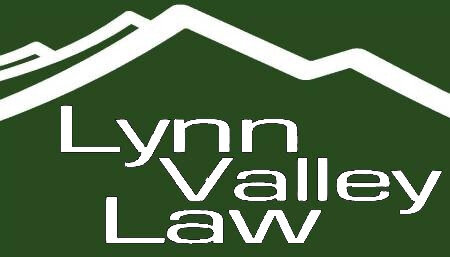Best Nursing Home Abuse Lawyers in North Vancouver
Share your needs with us, get contacted by law firms.
Free. Takes 2 min.
List of the best lawyers in North Vancouver, Canada
About Nursing Home Abuse Law in North Vancouver, Canada:
Nursing Home Abuse Law in North Vancouver, Canada, safeguards the rights and well-being of elders residing in care homes. It includes physical, emotional, financial, and sexual neglect or abuse. The law ensures that nursing homes provide a safe, comfortable and respectful environment for their residents. If an individual is subjected to any form of abuse in a nursing home, they have the right to seek legal recourse and justice.
Why You May Need a Lawyer:
You may require a lawyer to help navigate the complexities of the legal system. This can be particularly pertinent in situations such as suspected abuse or neglect, substandard living conditions, financial exploitation, violation of rights, or wrongful death in a nursing home or elder care facility. A lawyer can help collect evidence, compile a case, protect the victim's interests and seek compensation or justice on behalf of the victim.
Local Laws Overview:
In North Vancouver, the Adult Guardianship Act protects seniors from all forms of abuse, neglect and self-neglect. Failing to adhere to the rights and protections outlined in the Act may result in potential criminal, civil, or administrative penalties. The key aspects are
- Physical Safety: The resident has the right to be treated with dignity, respect and free from physical, sexual and mental abuse.
- Medical Needs: Nursing homes should provide medical care and attention to their residents at all times.
- Quality of Life: The resident has a right to a reasonable standard of living including proper food, clothing and personal care.
- Finance: A resident should be free from financial exploitation. Any irregularities should immediately be reported.
Frequently Asked Questions:
1. What is considered abuse in a nursing home?
Abuse in a nursing home can range from physical, emotional, sexual abuse to financial exploitation. Any behaviour that causes harm or distress to a resident qualifies as abuse.
2. What should I do if I suspect nursing home abuse?
If you suspect nursing home abuse, first ensure the safety of the elder. Report the incident immediately to the administration of the nursing home, local authorities, and consult with a legal advisor.
3. Can I sue a nursing home for abuse or negligence?
Yes. If your loved one has been a victim of abuse or neglect in a nursing home, you have the right to sue the facility for neglect and abuse and seek compensation for your loved one's suffering and any necessary medical treatment.
4. What evidence is needed for a nursing home abuse claim?
Evidence for a nursing home abuse claim can include medical records, personal testimonies, photographs of injuries, or records of financial transactions.
5. Who is responsible for investigating nursing home abuse?
Nursing home abuse claims are usually investigated by the local health authority. In addition, your legal advisor can also help in conducting investigations and gathering evidence to build a strong case.
Additional Resources:
In addition to seeking legal counsel, there are several resources available for support and assistance. The Adult Abuse and Neglect Hotline in British Columbia, the Provincial Ombudsman's Office, and the Senior's Advocate Office are all important resources. You can also reach out to the Community Legal Assistance Society for legal help.
Next Steps:
If you believe that you or your loved one has been a victim of nursing home abuse, it's crucial to take immediate action. Document all incidents thoroughly, take photographs if possible, and seek medical assistance. Consult with an experienced lawyer specializing in elder law. They can aid in evaluating the case, understanding your rights, and pursuing legal action.
Lawzana helps you find the best lawyers and law firms in North Vancouver through a curated and pre-screened list of qualified legal professionals. Our platform offers rankings and detailed profiles of attorneys and law firms, allowing you to compare based on practice areas, including Nursing Home Abuse, experience, and client feedback.
Each profile includes a description of the firm's areas of practice, client reviews, team members and partners, year of establishment, spoken languages, office locations, contact information, social media presence, and any published articles or resources. Most firms on our platform speak English and are experienced in both local and international legal matters.
Get a quote from top-rated law firms in North Vancouver, Canada — quickly, securely, and without unnecessary hassle.
Disclaimer:
The information provided on this page is for general informational purposes only and does not constitute legal advice. While we strive to ensure the accuracy and relevance of the content, legal information may change over time, and interpretations of the law can vary. You should always consult with a qualified legal professional for advice specific to your situation.
We disclaim all liability for actions taken or not taken based on the content of this page. If you believe any information is incorrect or outdated, please contact us, and we will review and update it where appropriate.










